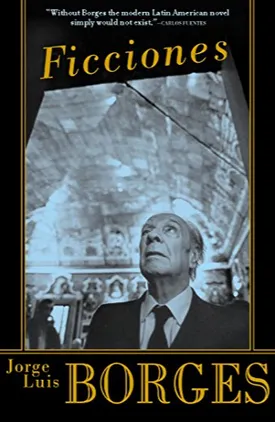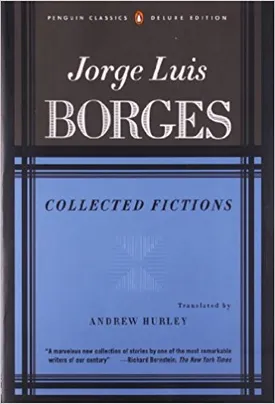Jorge Luis Borges
Jorge Luis Borges is one of the most revered literary minds of the 20th century. Born in Buenos Aires, Argentina in 1899, Borges was a writer of short stories, essays and poetry. He was highly influenced by the gaucho culture, philosophy and literature of his native country and his works are considered to have been an influence for subsequent generations of authors. Many of Borges' works focused on themes of fantasy, magic, mythology, religion and philosophy. He is considered one of the major modernists of the Spanish language, with his works widely read and critically acclaimed by fellow authors, readers and scholars.
Borges was born in a literary family, with his father a professor of psychology and literature. He grew up among poetry and philosophy and his early education was heavily influenced by these two subjects. He began writing while attending a school in Geneva, Switzerland, where his family had moved after his father's tenure as Director of the National Library of Argentina. His first published work, 'Fervor de Buenos Aires' (1920), was a collection of poems that celebrated the city - an expression of Borges' patriotism.
The works published over the following decades would reach further afield to explore ideological and metaphysical ideas. 'Ficciones' (1944) was Borges' first well-known collection, and it featured stories such as 'The Garden of Forking Paths', 'The Lottery in Babylon' and 'The Library of Babel'. In these stories, Borges examined the concepts of infinity, time, chance and fate - ideally subject matters for a philosopher but explored through an imaginative notion of a library with books that held infinite versions of any text.
Other works explore the notion of free will, such as in 'The Aleph', a short story which examines a point in space that contains all places in the world. His collection of essays, 'Other Inquisitions (1952), delve into the famous 10th-century Islamic philosopher, Ibn Tufail and his notion of Reconcilement of Opposites. Through such works, both ancient and modern ideas are explored in a thought-provoking way.
At the heart of Borges' work is the notion that knowledge and understanding can be achieved only through a combination of imaginative thought, literary exploration, historical and scientific research and philosophical analysis. His essays and collections such as 'The Maker' (1949) and 'The Aleph' (1956) echoed his beliefs about the interdependence of learning. He wrote about the power of intelligences and questioned how one could mutually benefit one another - a message that resonates with the world today.
Throughout his 85 years of life, Borges was celebrated as a prodigy in the field of literature, but also a pioneering philosopher. He made connections between the metaphysical and the physical, and between cultures and belief systems. His works were inspired by the gaucho culture of his home country, and later by the medieval Islamic philosophy and thought.
Such was the power of his works and ideas that they had a major impact on subsequent authors such as Gabriel García Márquez, Italo Calvino, Julio Cortázar, and even Jorge Luis Borges. In 1982, he was awarded the Pulitzer Prize and the Jerusalem Prize, having been embraced by both Argentina and the world at large. His works continue to be read, enjoyed and critically assessed, with the immortality of his ideas having caused lasting impact for generations of readers.



